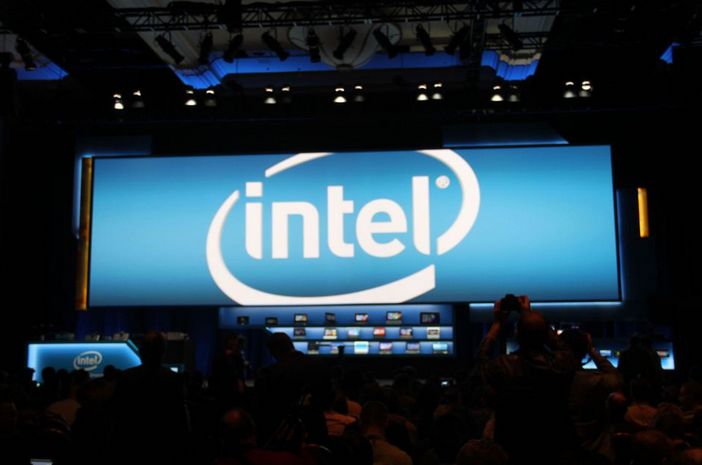 NEWS
NEWS
 NEWS
NEWS
 NEWS
NEWS
![]() Sales of Microsoft’s much-derided Windows 8 could be about to get a boost thanks to the upcoming launch of Intel’s new “Bay Trail” Atom processor, which promises to transform low-end notebooks and convertible PCs into powerful workhorses with an all-day battery life.
Sales of Microsoft’s much-derided Windows 8 could be about to get a boost thanks to the upcoming launch of Intel’s new “Bay Trail” Atom processor, which promises to transform low-end notebooks and convertible PCs into powerful workhorses with an all-day battery life.
Speaking at Intel’s annual IDF event in Beijing earlier today, Intel’s Kirk Skaugen, general manager of its PC client group, said that Bay Trail will “significantly expand the volume of Intel architecture-based systems, both for Windows 8 and for alternative operating systems”.
The Bay Trail Atom chip was initially designed to run on tablet devices, but now Intel says that the processor is capable of powering the new breed of convertible laptops and notebooks, plus some low-end desktop PCs. One of the greatest advantages of Bay Trail is its price, with Skaugen saying that products running it are likely to cost “under $599”.
Bay Trail is the next step up from Intel’s previous generation mobile chip, the Clover Trail. Unlike its predecessor however, Bay Trail chips are built with an entirely new micro-architecture that packs up to four redesigned Atom cores that gives a serious kick up the rear end to both processing power and energy efficiency, according to Intel. Indeed, so significant is the reduction in power consumption that machines running Bay Trail will even be able to do away with the fans used to keep them cool. Machines built with Bay Trail are likely to hit the shops by the end of the year.
![]() Intel’s revelations about the new chip come as the company does all it can to revive flagging PC sales. Just like Microsoft and PC makers, the company has come under pressure from the growing number of consumers that choose to buy Android or iOS tablets powered by the ARM processors of its biggest rival. Consumers are ditching PCs not just because tablets are cooler and more mobile, but also because they’re often considerably less expensive, with the iPad Mini costing just $329 for example.
Intel’s revelations about the new chip come as the company does all it can to revive flagging PC sales. Just like Microsoft and PC makers, the company has come under pressure from the growing number of consumers that choose to buy Android or iOS tablets powered by the ARM processors of its biggest rival. Consumers are ditching PCs not just because tablets are cooler and more mobile, but also because they’re often considerably less expensive, with the iPad Mini costing just $329 for example.
As such, Bay Trail could help Intel, Microsoft and a slew of PC makers to better compete in the low-end consumer device market. Intel has already made efforts to do so with its backing of so-called ultrabooks – a new breed of super-slim, lightweight laptops boasting cutting edge features like touchscreens and a relatively high performance for their size. But until now, these devices have largely failed to capture the imagination of consumers, accounting for just 6% of the 200 million-odd notebooks shipped in 2012, according to the research firm IDC. One of the main reason for this is thought to be the cost of the new machines, which generally go for in excess of $1,000.
To counter this, Intel and various PC makers have responded by reducing the cost of ultrabooks as much as they can. Now, with the next-generation Bay Trail chips about to be unleashed, Skaugen claims that this will lead to a range of “entry level” machines hitting the stores before Christmas. Bay Trail laptops won’t be designated as official ‘ultrabooks’, but nevertheless Intel reckons they’ll offer more or less the same level of performance, including the all-important day long battery life.
As well as Bay Trail, we also have the upcoming Haswell fourth-generation processor to look forward to. These chips come with the promise of up to ten hours of battery life, and notebooks running them should be among the most powerful business and consumer devices yet seen.
But will Haswell and Bay Trail be enough for Intel to regain lost ground against the range of ARM-powered mobile devices?
Perhaps, but Intel’s machines still face the considerable problem of being tied to Windows 8, which has suffered from negative reviews and a dearth of apps in comparison to other operating systems. Super-powered or not, the next-generation of Intel machines are still going to be a hard sell.
Support our mission to keep content open and free by engaging with theCUBE community. Join theCUBE’s Alumni Trust Network, where technology leaders connect, share intelligence and create opportunities.
Founded by tech visionaries John Furrier and Dave Vellante, SiliconANGLE Media has built a dynamic ecosystem of industry-leading digital media brands that reach 15+ million elite tech professionals. Our new proprietary theCUBE AI Video Cloud is breaking ground in audience interaction, leveraging theCUBEai.com neural network to help technology companies make data-driven decisions and stay at the forefront of industry conversations.